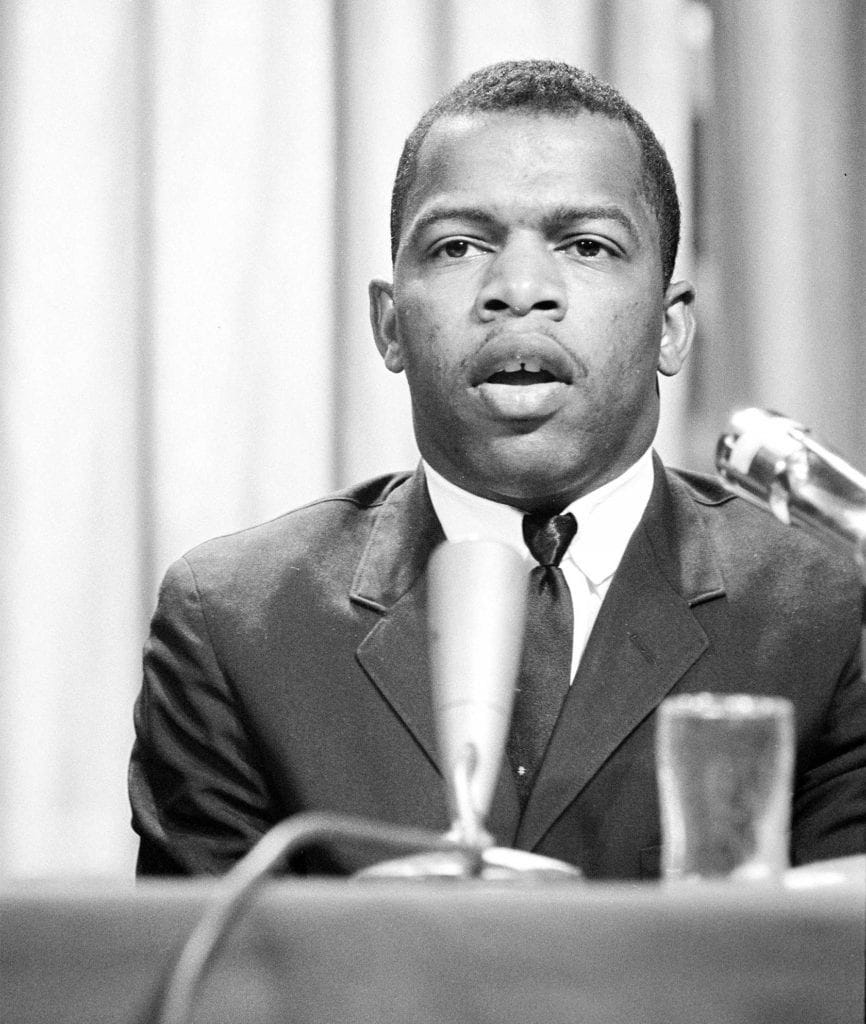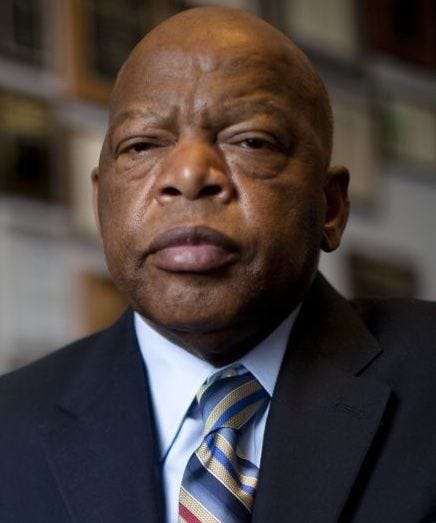Go Make Good Trouble
When Silence Becomes Surrender, Raise Your Voice or Get Out of the Way
John Lewis was not some relic of civil rights past, ossified in marble and forgotten in schoolbooks. He was a living, breathing, fire-blooded example of what happens when the human spine refuses to bend — even when batons come down hard enough to fracture it. At twenty-five, he stood on the Edmund Pettus Bridge knowing the weight of what waited on the other side: troopers in riot gear, clubs raised, gas canisters at the ready. They didn’t disappoint. They cracked his skull, spilled his blood, and thought that might silence him. But Lewis didn’t just get up — he kept marching. He wore his scars like credentials, proof that the struggle for justice isn’t a metaphor, it’s a street fight waged with discipline, dignity, and defiance. And if he were here today, he’d be the first one through the police line, smiling like a man who’s been here before.
He would tell us that Good Trouble was not just a slogan to slap on a t-shirt. Good Trouble is the antidote to tyranny, the necessary collision between a corrupt power and an awakened people. He would look at this regime — this grotesque, swaggering, jackbooted second term of Donald Trump — and say that our silence is complicity. This is a president who declared birthright citizenship dead with a stroke of a pen, who turned the Justice Department into a personal militia, who dispatched ICE to tear families apart like some sick national pastime. The Constitution isn’t a guidebook to them; it’s an obstacle to be bulldozed. The courts are compromised, the guardrails have snapped, and the only thing standing between what’s left of the republic and full-blown authoritarianism is us — noisy, disobedient, and absolutely unwilling to sit down.
Lewis wouldn’t have been surprised. He saw this playbook before. Intimidation, surveillance, manufactured crises — all the tools of autocracy dressed up in the flag and sold to people too scared or too smug to see the danger. He’d remind us that America’s promise has always been aspirational, and that aspiration only inches forward when we shove it with our bare hands. Power concedes nothing, and it never will, until we make it hurt. That’s what Good Trouble is for. It is not a request, it is not a negotiation. It is a declaration that we have had enough, that the line has been crossed, and that we are here to drag the nation, kicking and screaming if we must, back to its unfinished ideals.
He would tell us that Good Trouble is a muscle — it only works if you use it. He’d tell us that July 17th is not a date to commemorate passively, but a test to see if we’ve remembered how to fight. Every protest today is a question aimed at the American conscience: do we still have one? Every chant, every sign, every drumbeat in the street is a challenge to the cowards in power who bet that fear would keep us home. If you’re tired, good — tired means you’ve been paying attention. But the only cure for that exhaustion is movement. Rest if you must, but never quit the march.
Because while Trump and his regime sharpen their knives on the bones of the vulnerable, they hope we stay polite. They hope we stay online, arguing about etiquette while they redraw the borders of power in their image. They hope that the threat of violence, of arrest, of surveillance is enough to keep the masses meek. But they forget that the skull they cracked in 1965 did not break the spirit behind it. John Lewis stood back up, bruised but defiant, and he’s daring us now to do the same.
If you think one march doesn’t matter, remember that every revolution begins with people deciding that today is the day they won’t just take it anymore. Today is that day. July 17th. If you’re not already in the streets, get there. If you’re not holding a sign, make one. If your voice hasn’t gone hoarse yet, you’re not shouting loud enough. History isn’t asking politely — it’s banging on the door, demanding to know where the hell you are.
Go make Good Trouble. Make it messy, make it loud, make it unforgettable. Fill the streets until the sound of your footsteps is louder than the lies coming from the White House. Make them see that the people still have teeth. Make them regret every single cruelty they thought would go unpunished. Make July 17th the day they remember when the people stopped asking and started taking back what was always theirs.
Good Trouble lives on because we choose to keep it alive, so go make some Good Trouble. It's necessary.
Subscribe now and help fuel the reporting, resistance, and righteous chaos this moment demands.
Join us. Let’s make some necessary trouble together.






Thank you for your article on John Lewis. I was fortunate to have met Mr. Lewis at a book fair in Washington, D C. years ago. May he rest in peace.
Thank you!!